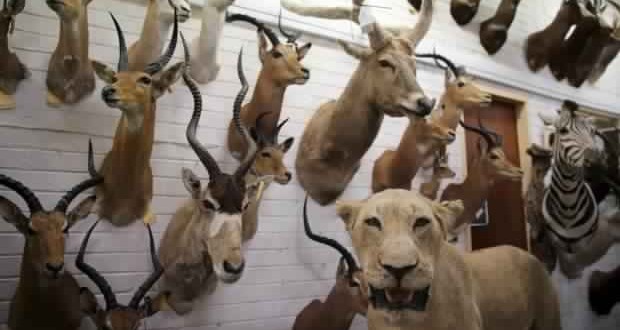Man is the deadliest predator on Earth. A new study has designated a new category of hunter under which mankind falls, the “super predator.”
Research published in the Aug. 21 edition of the journal Science by a team led by Dr. Chris Darimont, the Hakai-Raincoast professor of geography at the University of Victoria, shows how extreme human predatory behavior is responsible for widespread wildlife extinctions, shrinking fish sizes and disruptions to global food chains.
“These are extreme outcomes that non-human predators seldom impose,” Darimont and colleagues write in the article, “The Unique Ecology of Human Predators.”
“Our wickedly efficient killing technology, global economic systems and resource management that prioritize short-term benefits to humanity have given rise to the human super predator,” says Darimont, also science director for the Raincoast Conservation Foundation. “Our impacts are as extreme as our behaviour and the planet bears the burden of our predatory dominance.”
The team’s global analysis indicates that humans typically exploit adult fish populations at 14 times the rate than do marine predators. Humans also hunt and kill large land carnivores such as bears, wolves and lions at nine times the rate that these predatory animals kill each other in the wild.
Researchers noted that in some cases, dwindling species of predatory land carnivores are more aggressively hunted for trophies, due to the premium placed on rare prey.
The result of human activity on wildlife populations is far greater than natural predation. Research shows socio-political factors can explain why humans repeatedly overexploit. Technology explains how: Humans use advanced killing tools, cheap fossil fuel, and professional harvesters – like high-volume commercial fishing fleets – to overcome the defensive adaptations of prey.
“We should be protecting our wildlife and marine assets as an investor would in a stock portfolio,” says Darimont.
Humanity also departs fundamentally from predation in nature by targeting adult quarry. “Whereas predators primarily target the juveniles or ‘reproductive interest’ of populations, humans draw down the ‘reproductive capital’ by exploiting adult prey,” says co-author Dr. Tom Reimchen, biology professor at UVic.
During four decades of fieldwork on Haida Gwaii, an archipelago on the northern coast of British Columbia, Reimchen began to look at how human predators differ from other predators in nature. Reimchen’s predator-prey research revealed that predatory fish and diving birds overwhelmingly killed juvenile forms of freshwater fish. Collectively, 22 predator species took no more than five per cent of the adult fish each year. Nearby, Reimchen observed a stark contrast: fisheries exclusively targeted adult salmon, taking 50 per cent or more of the runs.
The data set includes wildlife, tropical meat and fisheries systems from every continent and ocean, except Antarctica. There are distinct regional differences. “Higher human densities and reduced fish biomass (from longer exploitation) likely explain higher fishing rates in the Atlantic versus Pacific oceans,” the research says.
The authors conclude with an urgent call to reconsider the concept of “sustainable exploitation” in wildlife and fisheries management. A truly sustainable model, they argue, would mean cultivating cultural, economic and institutional change that places limits on human activities to more closely follow the behaviour of natural predators.
“This does present enormous challenges in the short term, but’s it’s no different than changing the practices of our carbon economy,” says Darimont.
Agencies/Canadajournal
 Canada Journal – News of the World Articles and videos to bring you the biggest Canadian news stories from across the country every day
Canada Journal – News of the World Articles and videos to bring you the biggest Canadian news stories from across the country every day



